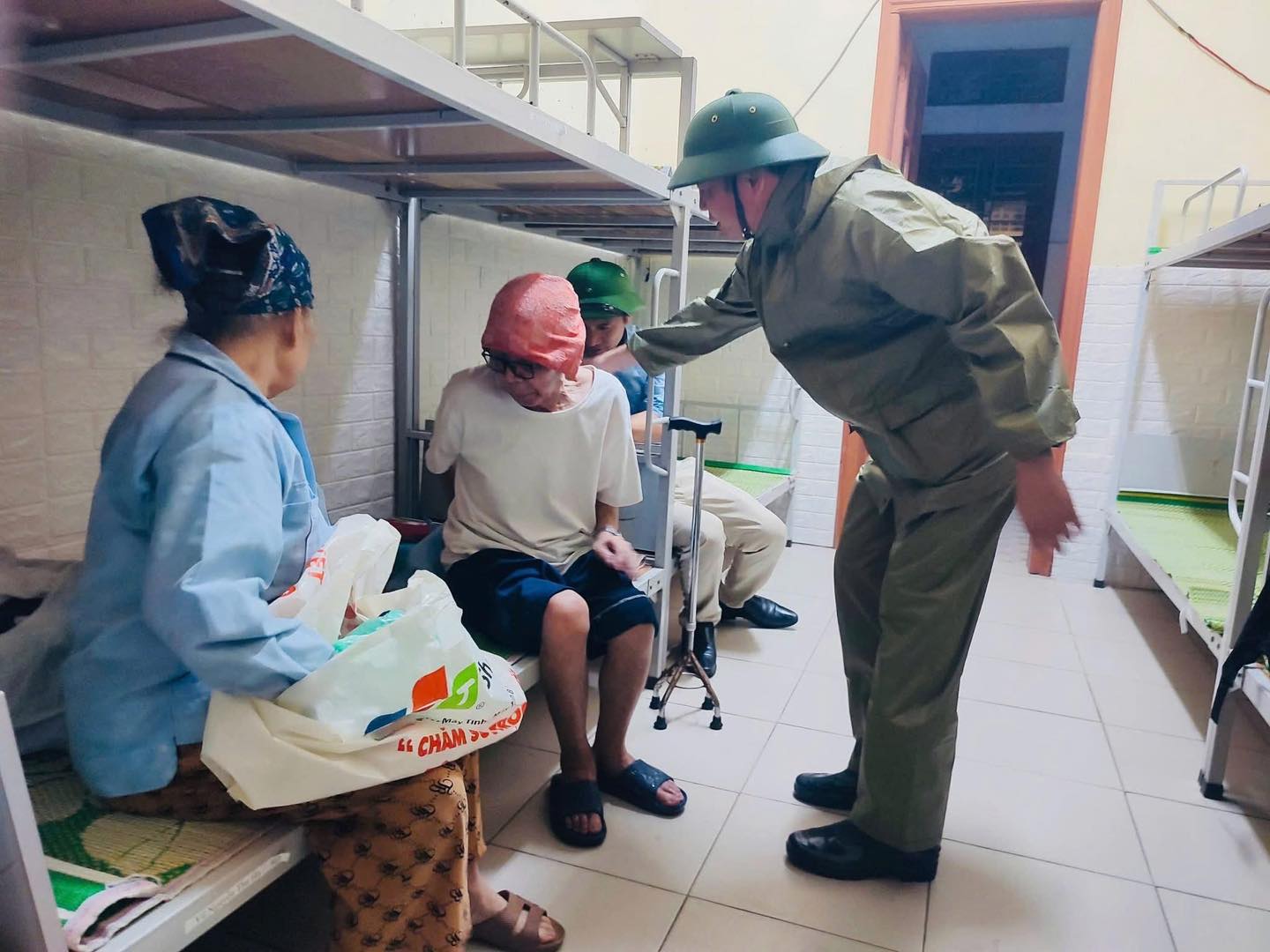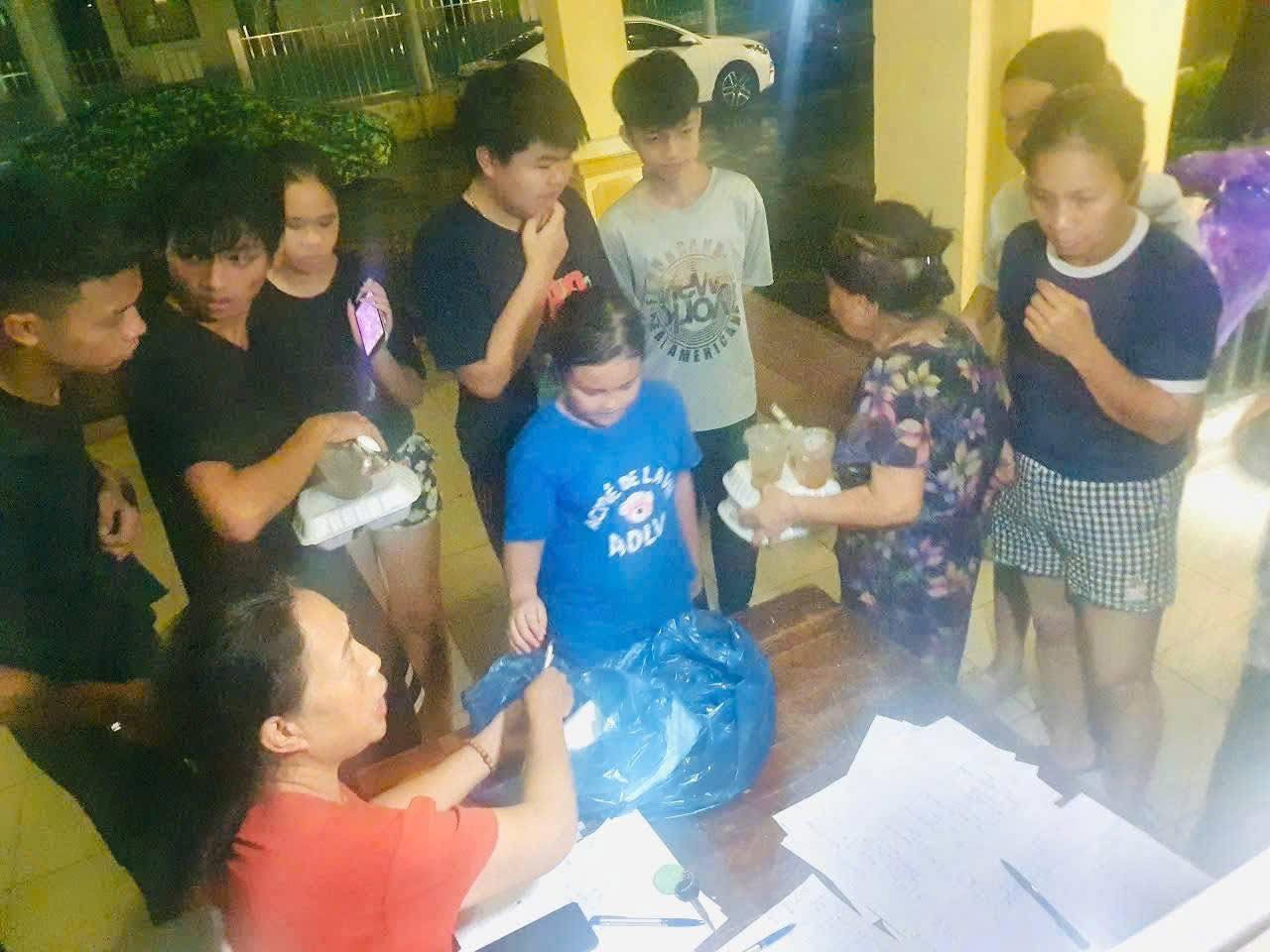During the days of big storms, when storm No. 3 - Wipha made landfall, the whole Le Thanh Nghi ward (Hai Phong city) was like a big family. Each hot portion of rice was carefully prepared by officers and soldiers to be delivered to evacuate people. No one is left behind.
The simple but nutritious meals were cooked on the spot, brought to the Le Quy Don Secondary School Boarding Area - a safe temporary shelter for hundreds of people evacuated from old apartment buildings. The meals are not only warm to the stomach but also warm to the heart, because they contain the warm love of the people, the responsibility, and the sharing of the government and functional forces with the people in times of trouble.
Before the storm made landfall, the leaders of Le Thanh Nghi ward gave strong instructions on natural disaster prevention. In recent days, the ward has urgently prepared evacuation locations, arranged temporary accommodation, ensuring electricity, water, blankets, and 24/7 medical attention. The dormitory of Le Quy Don Secondary School is being used as the main gathering point. Here, doctors, militia, local police, and youth union members took turns to be on duty to support the people in a timely manner.

On the afternoon of July 21, when heavy rain and winds began to rise, the entire force of the ward, including cadres, civil servants, police, militia, and organizations, simultaneously launched a campaign to support people in the Binh Minh apartment complex. The relocation was carried out urgently but thoughtfully, from supporting the transportation of belongings to carrying the elderly and holding children.
A total of 71 households (213 people) in area B3, 76 households (226 people) in area B2 and 50 people in the Construction Collective Housing Area were evacuated. Of these, about 2/3 of households returned to relatives' homes, the rest were arranged to stay in dormitories.

The ward has arranged forces to be on duty at evacuation points to ensure security and order, while continuing to closely monitor storm developments, ready to respond to any arising situations.
More than the numbers, what remains is the image of cadres packing rice and clearing sleeping places for people in the rain and wind; a warm call in a dormitory; a lights that do not go out all night to keep the people safe. During the storm, humanity lights up like a warm flame in the thunderstorms.











